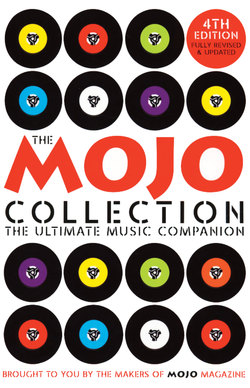Читать книгу The Mojo Collection - Various Mojo Magazine - Страница 101
На сайте Литреса книга снята с продажи.
Tim Buckley Goodbye And Hello Landmark in the shift from folk to singer-songwriting music.
ОглавлениеRecord label: Asylum
Produced: Jerry Yester
Recorded: TTG Studios, and mixed by Bruce Botnick at Sunset Sound, Los Angeles; June 1967
Released: November 1967
Chart peaks: None (UK) 171 (US)
Personnel: Tim Buckley (v, g, sg, kalimba, vibes); Lee Underwood (g); Brian Hartzler (g); John Forsha (g); Jimmy Bond (b); Jim Fielder (b); Eddie Hoh (d); Carter CC Collins (pc, congas); Dave Guard (kalimba, tambourine); Don Randi (p, harmonium, harpsichord); Jerry Yester (o, p, harmonium); Henry Diltz (hm)
Track listing: No Man Can Find The War; Carnival Song; Pleasant Street; Hallucinations; I Never Asked To Be Your Mountain; Once I Was (S/UK); Phantasmagoria In Two; Knight-Errant; Goodbye And Hello; Morning Glory (S)
Running time: 42.53
Current CD: Warner Brothers 8122735692 adds Tim Buckley album
Further listening: Happy Sad (1969) – jazz/folk lullabies; Blue Afternoon (1970) – his most focused songwriting; Starsailor (1972) – wild avant-jazz and Song To The Siren; Greetings From LA – soul-inspired and drenched in sweat; Dream Letter – Live In London 1968 (1990)
Further reading: Blue Melody: Tim Buckley Remembered (Lee Underwood, 2001); Dream Brother: The Music Of Jeff And Tim Buckley (David Browne, 2000); www.timbuckley.com
Download: Not currently legally available
Recorded in June 1967, the month the Beatles released Sgt. Pepper, Tim Buckley’s second album is drenched in the musical freedom of that mythologised time. ‘We saw ourselves sailing along in the direction that Bob Dylan was taking lyrics and that The Beatles were taking instrumentation,’ says poet Larry Beckett, Buckley’s old school friend, then creative collaborator and co-writer of half the songs on Goodbye And Hello. ‘That is, toward making rock’n’roll into art songs, where they’re so beautifully made that they’re meant to last in the culture.’
According to producer Jerry Yester, ‘When Buckley and Beckett came to me, the only idea they had was that the album would be free of restraint or commercial consideration. There was to be no compromising on the songs or how they were presented. Working with Tim was a stretch. When someone says you can do anything you want, it’s a little intimidating at first, and then it’s totally exciting.’
Though Goodbye And Hello feels like an orchestrated album, in fact only the ambitious title track was orchestrally sweetened. The album’s broad spectrum of sound is suggested through the flexibility of relatively few instruments and Buckley’s most diverse collection of songs: the topical folk-rock of No Man Can Find The War; a blistering dialogue with drug dependency in Pleasant Street; and the cathartic I Never Asked To Be Your Mountain (addressed in part to his ex-wife Mary and son Jeffrey Scott). The tender, lamenting Once I Was (‘Soon there’ll come another/to tell you I was just a lie’) is a cousin of Fred Neil’s The Dolphins (which Tim performed regularly); Morning Glory (‘write me a song about a hobo’ was the singer’s entire instruction to his lyricist) became Buckley’s most covered song, and closes the album with a brief, exquisite wave of choral harmony.
What holds Goodbye And Hello together, and animates its occasionally bombastic conceits, is a string of vocal performances of staggering authority for a young man not yet twenty-one. The musical freedom trumpeted so clearly here was something Tim would insist on for the rest of his career, to the dismay of those who hoped he’d linger a little longer at some of the stops along the way.
